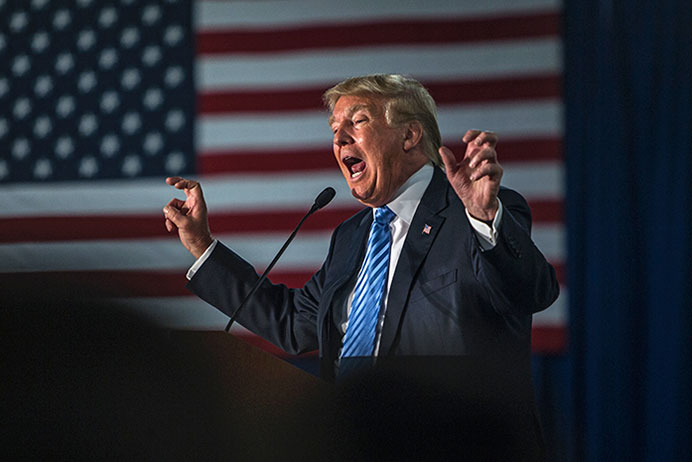Jace Brady
[email protected]
In 2012, the Republican Party created a nomination rule to protect its preferred nominee, Mitt Romney, from potential challenges at the convention. Rule 40b requires that a candidate win the majority of the delegates in eight states in order to be eligible for the nomination. At the time of this writing, this only includes Donald Trump, though Sen. Ted Cruz will likely reach this threshold by time he arrives at the convention.
The reason this rule is important is because it may prevent the Republican establishment from effectively blocking Trump from the nomination in the increasingly likely event he fails to win 1,237 delegates. A rule created by party elites, who thought they were cleverly protecting the establishment, may in fact allow an outsider to be the nominee.
Ultimately, the Republican Party Rules Committee has the power to change the rules before the convention and open the door for another candidate to win the nomination. The rules, as written, were completed in November, and candidates had to agree with those rules in order to contend for the nomination. If the party tries to change the rules, it will be an overt demonstration against the primary voters, a majority of whom have voted for outsider candidates Trump and Cruz.
This type of late rule change would likely elicit a fierce reaction from both Trump and Cruz supporters. It would be an obvious effort to recruit an establishment candidate for the nomination. If this were to happen, I think one of three things is likely to occur.
First, Cruz and Trump put their differences aside and combine their delegates to deny the party the opportunity to enter their preferred candidate into the running. This scenario likely results in a Trump-Cruz ticket with a lack of support from the establishment.
The second outcome is a result of the hard work and organization of the Cruz campaign. Cruz has targeted every available delegate with a vigor that will reap rewards on the second ballot at the contested convention. Because of his intensity, Cruz may be able to wrap up the nomination on the second or third ballot. However, if it goes beyond the third ballot the likelihood that Cruz is able to coalesce the required support diminishes greatly.
Finally, it is still very likely that the Republican Party goes against the will of the people and changes rule 40b to open a door to a new candidate. There are already murmurs that Trump’s and Cruz’s inability to win a majority of delegates will be viewed as a repudiation by the voters. If the nomination process goes past the first three ballots, it is likely that delegates will start to break off and turn to other candidates. Romney or Paul Ryan have both been discussed as likely recipients of this sort of late ballot support.
Ultimately, it won’t matter which of these scenarios play out at the Republican Convention. Either Trump is the nominee and is decimated in the November election, or he is boxed out, feels cheated, and runs as a third party, preventing any other Republican from winning the presidency.
This primary season has created a division in the Republican Party that only an extraordinary candidate would be able to heal. Though the party may try, a change to rule 40b is unlikely to prevent a Hillary Clinton presidency next year and may only pave her path to the White House.









